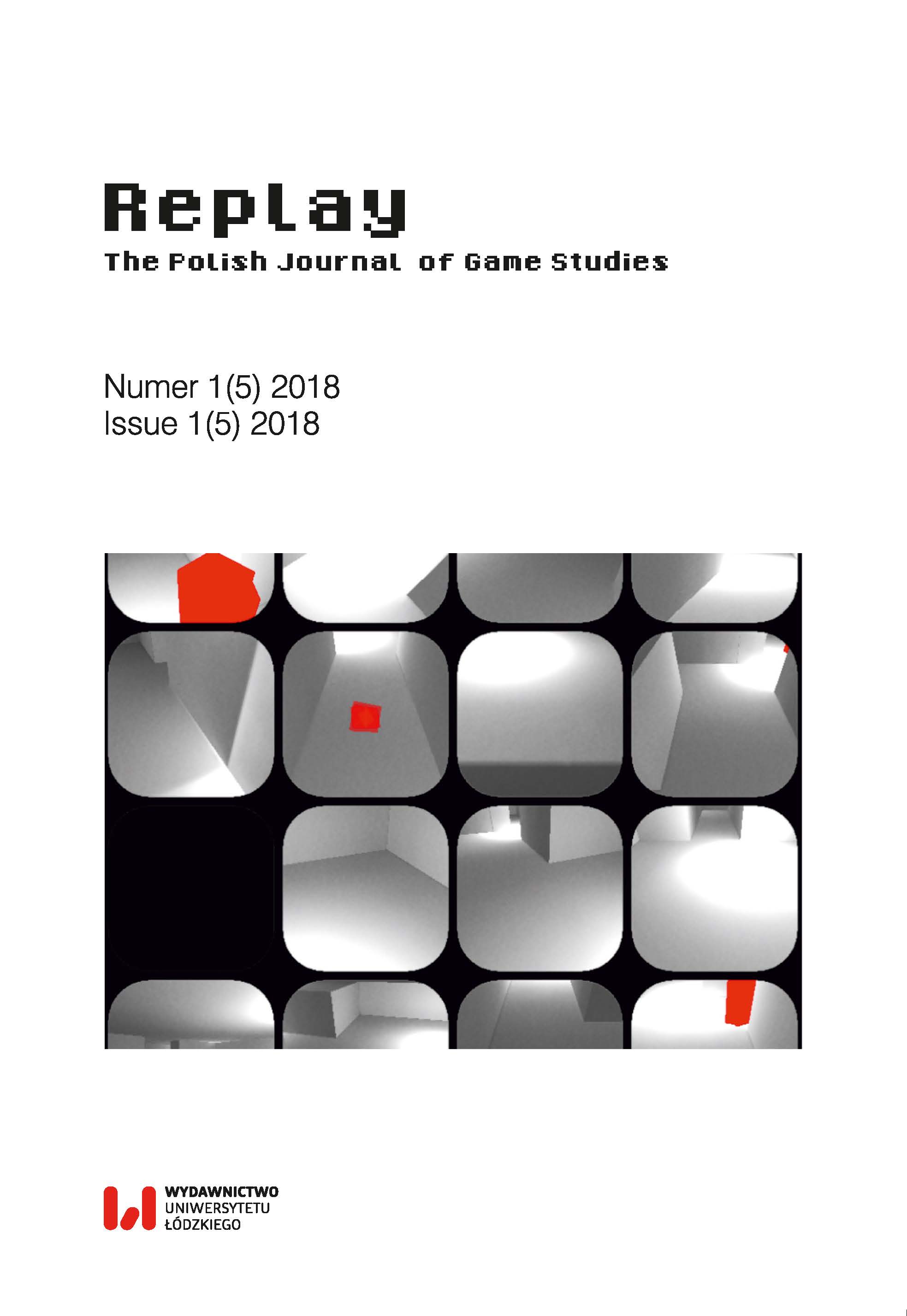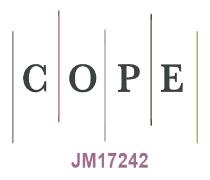Gry jako moralne laboratorium. Gamifikacja dylematów moralnych bezzałogowych samochodów
DOI:
https://doi.org/10.18778/2391-8551.05.01Keywords:
gamification, moral intuitions, testability, algorythmisation, autonomous vehicles, information ethicsAbstract
The aim of this paper is to identify potential dangers and benefits of investigating moral intuitions about the autonomous vehicles (AVs), using gamified research tools. We argue that computer games facilitate constructing more ecologically valid experiments. Due to the increased validity, the experimental outcomes can represent the real-life mechanisms of decision-making more faithfully. Data extracted in this manner could be used in implementation of ‘moral modules’ in AVs built in the real world. In our paper we analyze selected experimental setups that use game-like elements and assess them in the light of current literature regarding the algorithmization of ethics and implementability of ethical frameworks in machines. We also show how this problem can be interpreted in an overarching conceptual scheme of Floridi’s ‘information ethics’.
References
Alexander, L., Moore, M. (2016). Deontological Ethics. W: E.N. Zalta (red.), The Stanford encyclopedia of philosophy (Winter 2016).
Google Scholar
Blascovich, J., Loomis, J., Beall, A.C., Swinth, K.R., Hoyt, C.L., & Bailenson, J.N. (2002). Immersive virtual environment technology as a methodological tool for social psychology. Psychological Inquiry, 13(2): 103–124.
Google Scholar
DOI: https://doi.org/10.1207/S15327965PLI1302_01
Bonnefon, J.F., Shariff, A., & Rahwan, I. (2016). The social dilemma of autonomous vehicles. Science, 352(6293): 1573–1576.
Google Scholar
DOI: https://doi.org/10.1126/science.aaf2654
Bobrowski, M., Rodzińska-Szary, P., Socha, M. (2015). Kondycja polskiej branży gier wideo. Raport 2015. Dostępny online: http://kreatywna-europa.eu/wp-content/uploads/2016/01/Raport-na-temat-kondycji-polskiej-bran%C5%BCy-gierwideo-1–1.pdf [data dostępu: 16.08.2017].
Google Scholar
Cushman, F. (2013). Action, outcome, and value a dual-system framework for morality. Personality and Social Psychology Review, 17: 273–292.
Google Scholar
DOI: https://doi.org/10.1177/1088868313495594
DeSimone, J.A., Harms, P.D., & DeSimone, A.J. (2015). Best practice recommendations for data screening. Journal of Organizational Behavior, 36(2): 171–181.
Google Scholar
DOI: https://doi.org/10.1002/job.1962
ESA - Entertainment Software Association (2016). Essential facts about the computer and video game industry. Dostępny online: http://essentialfacts.theesa.com/mobile/ [data dostępu: 16.08.2017].
Google Scholar
Floridi, L. (2013). The ethics of information. Oxford University Press.
Google Scholar
DOI: https://doi.org/10.1093/acprof:oso/9780199641321.001.0001
Frey, A., Hartig, J., Ketzel, A., Zinkernagel, A., & Moosbrugger, H. (2007). The use of virtual environments based on a modification of the computer game Quake III Arena® in psychological experimenting. Computers in Human Behavior, 23(4): 2026–2039.
Google Scholar
DOI: https://doi.org/10.1016/j.chb.2006.02.010
Gitelman, L. (red.). (2013). Raw data is an oxymoron. MIT Press.
Google Scholar
DOI: https://doi.org/10.7551/mitpress/9302.001.0001
Greene, J.D., Nystrom, L.E., Engell, A.D., Darley, J.M., and Cohen, J.D. (2004). The neural bases of cognitive conflict and control in moral judgment. Neuron, 44: 389–400.
Google Scholar
DOI: https://doi.org/10.1016/j.neuron.2004.09.027
Huebner, B., Lee, J.J., & Hauser, M.D. (2010). The moral-conventional distinction in mature moral competence. Journal of Cognition and Culture, 10(1): 1–26.
Google Scholar
DOI: https://doi.org/10.1163/156853710X497149
Hursthouse, R., Pettigrove, G. (2016). Virtue Ethics. W: E.N. Zalta (red.), The Stanford encyclopedia of philosophy (Fall 2016).
Google Scholar
Illari, P., & Russo, F. (2014). Causality: Philosophical theory meets scientific practice. OUP Oxford.
Google Scholar
Järvelä, S., Ekman, I., Kivikangas, J.M., & Ravaja, N. (2012). Digital games as experiment stimulus. Proceedings of DiGRA Nordic, s. 6–8.
Google Scholar
Johansson, R., & Nilsson, J. (2016). Disarming the trolley problem – why self-driving cars do not need to choose whom to kill. W: Workshop CARS 2016 – Critical Automotive Applications: Robustness and Safety, red. M. Roy (Goteborg). Dostępny online: https://hal.archives-ouvertes.fr/hal-01375606/file/CARS2016_paper_16.pdf [data dostępu: 16.08.2017].
Google Scholar
Johansson-Stenman, O., & Martinsson, P. (2008). Are some lives more valuable? An ethical preferences approach. Journal of health economics, 27(3): 739–752.
Google Scholar
DOI: https://doi.org/10.1016/j.jhealeco.2007.10.001
Kivikangas, J.M., Chanel, G., Cowley, B., Ekman, I., Salminen, M., Järvelä, S., & Ravaja, N. (2011). A review of the use of psychophysiological methods in game research. Journal of gaming & virtual worlds, 3(3): 181–199.
Google Scholar
DOI: https://doi.org/10.1386/jgvw.3.3.181_1
Miller, B., & Record, I. (2013). Justified belief in a digital age: On the epistemic implications of secret Internet technologies. Episteme, 10(2): 117–134.
Google Scholar
DOI: https://doi.org/10.1017/epi.2013.11
Mittelstadt, B.D., Allo, P., Taddeo, M., Wachter, S., & Floridi, L. (2016). The ethics of algorithms: Mapping the debate. Big Data & Society, 3(2).
Google Scholar
DOI: https://doi.org/10.1177/2053951716679679
NHTSA (2013). Preliminary Statement of Policy Concerning Automated Vehicles. Dostępny online: https://www.nhtsa.gov/staticfiles/rulemaking/pdf/Automated_Vehicles_Policy.pdf [data dostępu: 16.08.2017].
Google Scholar
Paxton, J.M., Ungar, L., & Greene, J.D. (2012). Reflection and reasoning in moral judgment. Cognitive Science, 36: 163–177.
Google Scholar
DOI: https://doi.org/10.1111/j.1551-6709.2011.01210.x
Sicart, M. (2009). The banality of simulated evil: designing ethical gameplay. Ethics and information technology, 11(3): 191–202.
Google Scholar
DOI: https://doi.org/10.1007/s10676-009-9199-5
Sicart, M. (2013). Moral dilemmas in computer games. Design Issues, 29(3): 28–37.
Google Scholar
DOI: https://doi.org/10.1162/DESI_a_00219
Sinnott-Armstrong, W. (2015). Consequentialism. W: E.N. Zalta (red.), The Stanford encyclopedia of philosophy (Winter 2015).
Google Scholar
Sütfeld, L.R., Gast, R., König, P., & Pipa, G. (2017). Using virtual reality to assess ethical decisions in road traffic scenarios: applicability of value-of-life-based models and influences of time pressure. Frontiers in behavioral neuroscience, 11.
Google Scholar
DOI: https://doi.org/10.3389/fnbeh.2017.00122
Wallach, W., & Allen, C. (2008). Moral machines: Teaching robots right from wrong. Oxford University Press.
Google Scholar
DOI: https://doi.org/10.1093/acprof:oso/9780195374049.001.0001
Washburn, D.A. (2003). The games psychologists play (and the data they provide). Behavior Research Methods, 35(2): 185–193.
Google Scholar
DOI: https://doi.org/10.3758/BF03202541
Bethesda Game Studios (2008). Fallout 3 [PC]. USA: Bethesda Softworks.
Google Scholar
BioWare (1998). Baldur’s Gate [PC]. USA: Interplay Entertainment.
Google Scholar
BioWare (2000). Baldur’s Gate II: Shadows of Amn [PC]. USA: Interplay Entertainment.
Google Scholar
CCP Games (2003). Eve Online [PC Computer, Online Game]. CCP Games: played 12 September 2011.
Google Scholar
Lionhead Studios (2004). Fable [PC]. Wielka Brytania: Microsoft Game Studios.
Google Scholar
Media Molecule (2008). LittleBigPlanet [PS3]. USA: Sony Computer Entertainment.
Google Scholar
Mojang (2011). Minecraft [PC]. USA: Mojang.
Google Scholar
Telltale Games (2012). The Walking Dead [PC]. USA: Telltale Games.
Google Scholar
Valve Corporation, 1999 (mod) / 2000 (wersja pudełkowa), Counter-Strike [PC], USA: Vivendi.
Google Scholar
Downloads
Published
How to Cite
Issue
Section
License

This work is licensed under a Creative Commons Attribution-NonCommercial-NoDerivatives 4.0 International License.










